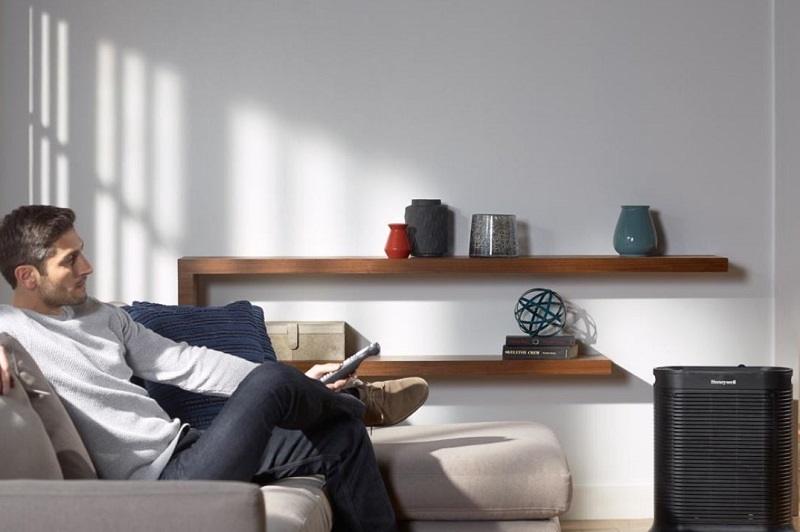Areas of your home that experience high humidity and high temperatures are prone to getting molds. And if you breathe in enough of the mold, it could result in short and long-term health issues.
"Does an air purifier help with mold?"
In this article, we will answer that question to help you decide if an air purifier is the right way to protect you and your loved ones from mold exposure.
We'll start with a quick answer, so you know what lies ahead - then, we’ll move onto a more comprehensive explanation.
The Short Answer: Yes
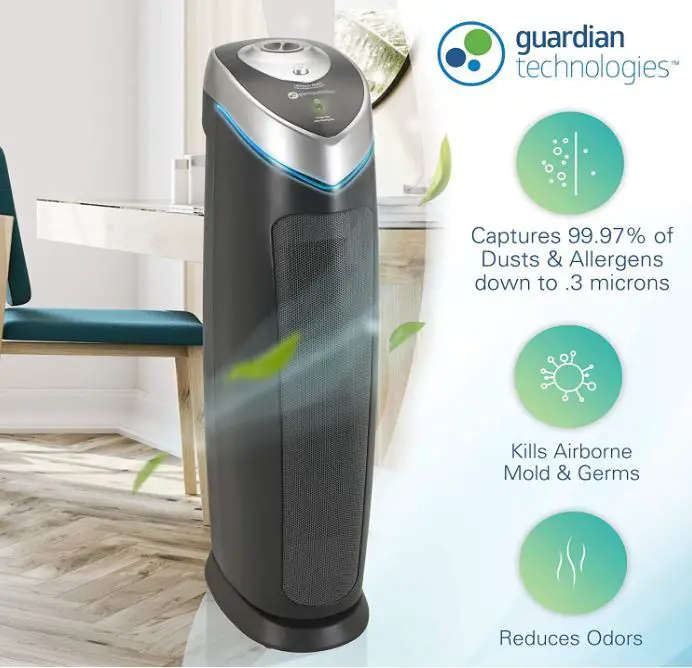
Yes, an air purifier helps to eliminate mold spores.
It has to be a HEPA filter, however, in order to catch airborne spores and stop them from reentering the space.
Two other features also help a great deal: an Activated Carbon filter to remove mold odors, and a germicidal UV-C filter to prevent reproduction.
The More Comprehensive Answer
In order to explain in more detail, we first need to understand why mold is unhealthy.
What is Mold and How Can it Impact Your Health?
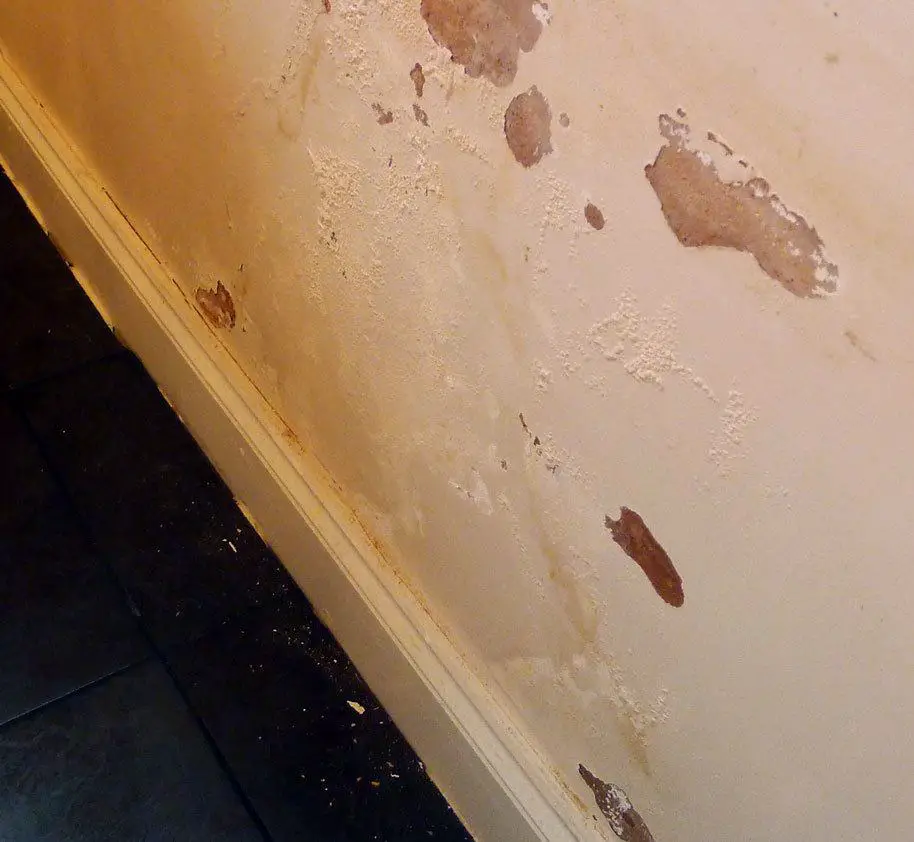
Mold is a fungus naturally found in regions with high humidity and warmer or temperate temperatures.
Mold acts as a decomposition agent, so they are a critical part of the ecosystem. Molds can break down any fauna, flora, dead leaves or fallen trees.
This is excellent for the environment, but not so great when mold starts doing its job on your home.
Mold reproduces by dispersing microscopic spores around in the air. These mold spores float around till they land on a damp surface.
As long as the damp surface remains wet and provides something for the mold spores to eat, they begin to reproduce.
Some of the adverse effects reproducing molds can have on your health are:
Long-term exposure to mold spores can have more critical health effects since people may not realize that they're reacting to the mold. The longer-term effects include:
Can an Air Purifier Help with Mold?
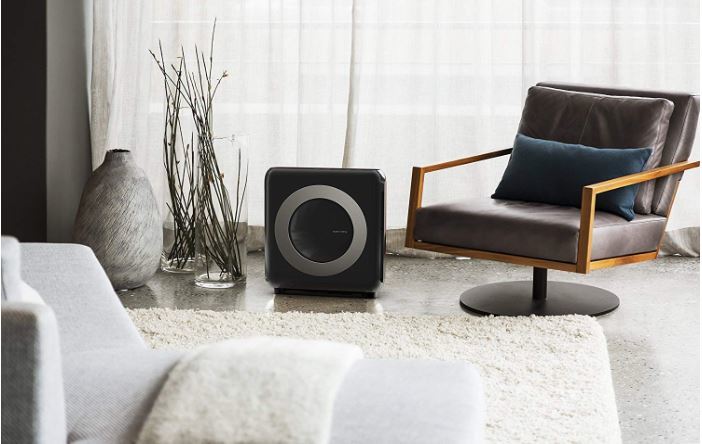
Now that you understand how exposure to mold is detrimental to your health, the next question is, "Can air purifier help with mold?"
The answer is yes… but not perfectly.
Air purifiers can eliminate mold spores from the air and prevent them from replicating - if they use a special kind of filter and germicidal technology.
That said, air purifiers don't treat current mold growth and therefore cannot eradicate these fungi from your home.
If you have a severe mold problem in your house, you must also address the underlying problem to find permanent relief (i.e., eliminate your moisture or high humidity problems).
Otherwise, the mold may continue to spread.
If you don't have a mold problem and need to remove naturally occurring mold spores from the air, an air purifier is an excellent alternative for your wellbeing.
To remove the mold spores from the air, your air purifier should include a HEPA filter. HEPA filters are fine enough to grab mold spores and prevents them from reproducing.
Ideally, your air purifier should also have an Activated Carbon filter. This is the only type that removes mold odors.
A germicidal UV-C filter (lamp) is another feature to search for in an air purifier, as it prevents mold spore reproduction.
As air flows through the air purifier, particles are exposed to UV-C light that makes it impossible for the mold to reproduce and destroys the mold's DNA.
How Can You Find the Ideal Air Purifier for Mold?
Now that you understand what an air purifier can and can not do for you in regards to mold, you are probably curious to determine which are the best mold air purifiers.
Check out our buying guide for the latest, greatest air purifiers for mold removal.
Summary: Do Air Purifiers Remove Mold?
We've covered a lot of information in this post:
Now you know the reply to the question, "Will an air purifier to help with mold?
How do HEPA Filters work on mold?
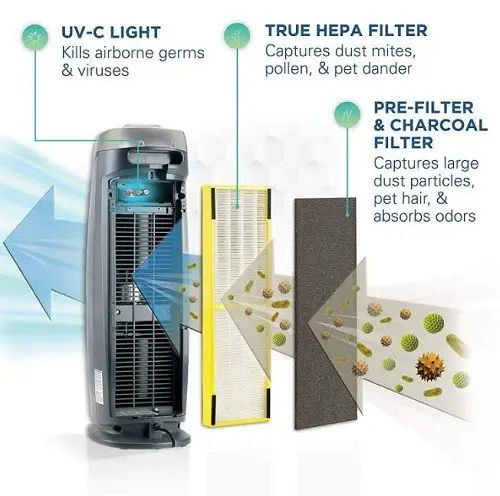
A HEPA filter is a mesh of cloth designed to trap particles that attempt to pass through it.
They're built to meet a U.S. Department of Energy standard requiring they block 99.97% of all particles that are 0.3 microns in size from moving through them.
Mold spores may vary tremendously in size, but the size range is usually between 4 microns and about 20 microns (Li et al. , 2011).
This means the mold spores fall well under the HEPA specification, letting a HEPA filter to catch the majority of mold spores that go through them.
Actual performance can depend on how often the HEPA filter is changed and how airtight the filter frame is.
Any openings will allow through mold spores.
Note that we don't suggest cleaning and reusing HEPA filters, even the ones labeled as reusable, as washing probably damages the fiber net and lessens the filter's ability to trap particles.
If you are concerned about mold, you will not be able to eliminate every mold spore from the dense HEPA mesh when cleaning it.
HEPA add-ons
Some HEPA Filter air purifiers include additional air purification methods or technology.
Plain HEPA: A true HEPA filter with no new technology is a fantastic mold spore removal apparatus. Replacing this filter will mitigate any possible problems with mold growing on the filter.
HEPA with UV-C light: there's some evidence that ultraviolet radiation of a particular wavelength (called UV-C mild ) can kill mold spores.
To succeed, the spores will need to be exposed to the light for a long time, and the source has to be stronger than what you will find in most commercial UV-C air purifiers.
Additionally, UV light can emit ozone as a by-product. Ozone is a respiratory irritant, and that the EPA doesn't recommend using air purifiers that might lead to indoor ozone concentrations to reach dangerous levels.
A UV-C light could lessen the odds of mold growing on the filter, and it could be useful if you're able to turn the UV-C light on just when needed, but the advantages likely don't outweigh the potential drawbacks.
HEPA with Antimicrobial layer: These filters are coated with a chemical that kills germs like mold spores.
This might make it less likely for mold to grow on the filter, and should have no detrimental effect on the filter's function.
HEPA with Carbon: Activated charcoal, or carbon, acts in an entirely different manner than HEPA filters, removing gaseous materials and smells in the air by trapping the molecules through "adsorption."
A carbon add-on will have no impact on mold spores but could reduce mildewy smells.
HEPA with ionizer: Ionizers provide an electrical charge to particles passing through it, making them adhere to each other or to a surrounding object (such as a HEPA filter).
But there is evidence that a HEPA filter's performance would enhance concerning mold spores.
Ionization generates ozone as a by-product, and we have already discussed the possible risks of ozone production.
Air purifiers that imply they ionize the air for "freshness" refer to the odor of ozone, which can hide less pleasing odors.
This does not mean pollutants are Actually neutralized or being eliminated from the ionizer.

